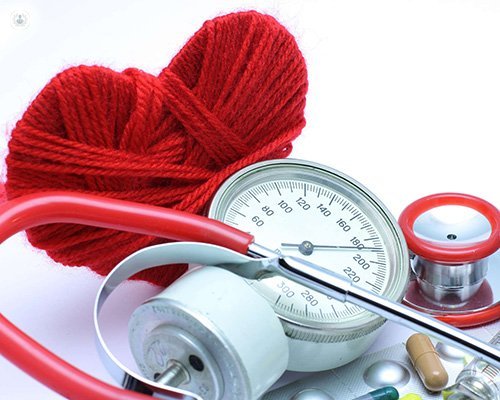Hypertension: a silent enemy
Written by:High blood pressure is the increase in blood pressure levels on a continuous or sustained basis. In Cardiology it is considered that a person is hypertensive when he presents figures above 140/90 mmHg in several measures taken at different moments. The heart puts pressure on the arteries so that they lead the blood to the different organs of the human body. This action is known as blood pressure
Causes of high blood pressure
High blood pressure is caused by an increase in the stiffness of the arteries , caused by different factors, and this ultimately damages the heart and other important organs such as the brain and kidney.

Complications of hypertension
With the development of hypertrophy at the level of the heart muscle, it becomes more irritable and more arrhythmias occur. In those patients who have already had a cardiovascular problem, hypertension can intensify the damage.
In addition, hypertension favors the development of arteriosclerosis (accumulations of cholesterol in the arteries) and the phenomena of thrombosis (can produce myocardial infarction or cerebral infarction). In the most severe case, hypertension can cause softening of the walls of the aorta and cause dilatation (aneurysm) or rupture, causing death.
Symptoms of high blood pressure
The symptoms are very variable, hypertension can range from a silent enemy in asymptomatic patients, until there is a dilation of the aorta causing sudden death due to aortic dissection of the patient. However, the most common symptom is usually headache.
High blood pressure: patient profile
AHT is generally associated with age, being more frequent after the age of 50. On the other hand, patients with heart disease , valvulopathies or patients with renal failure are more likely to have high blood pressure
Diagnosis of hypertension
The diagnosis of hypertension is based on a simple measurement procedure, although some cases require other tests such as Holter blood pressure. It is imperative to complete the test with a laboratory analysis of both blood and urine as well as an electrocardiogram. It is very important to keep in mind that hypertension can be asymptomatic and go unnoticed. It is more common after the age of 40, although it can appear at any age, with a family predisposition, although it also occurs in people with no history
Treatment of hypertension
The best treatment of hypertension is to prevent to prevent its occurrence. For this, it is essential to follow a healthy lifestyle, eliminating tobacco consumption, performing at least 150 minutes a week of moderate aerobic exercise that allows weight control and avoiding an excessive intake of salt in the diet.
When all this fails, one must go to medical treatment with drugs, either in monotherapy or by combining several active principles.


